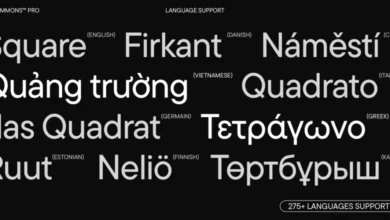Top 5 Tools to Get Historical Foreign Exchange Rates
Historical exchange rates play a crucial role in understanding the fluctuations and trends of currency exchange rates over time. These rates represent the past values of one currency in terms of another and provide valuable insights into the economic and financial landscape of different countries. Whether you’re an investor or simply someone interested in analyzing currency movements, having access to accurate historical exchange rate data is essential. This is where a historical exchange rate API comes in.
nnnnIn this blog, we will explore the significance of historical foreign exchange rates and why obtaining accurate data is vital. We will highlight the top five tools to help you retrieve reliable historical foreign exchange rates. Understanding the historical exchange rates enables us to comprehend the impact of economic events, policy decisions, and market forces on currency values. However, finding the right historical exchange rate API to access accurate data can be daunting.
nnnnWith numerous options available, choosing a reliable source that provides up-to-date and comprehensive information becomes crucial. So, let’s dive in and explore these invaluable resources together.
nnnnWhat Are Historical Foreign Exchange Rates?
nnnnHistorical foreign exchange rates refer to the past values of one currency about another. They represent the exchange rates applicable at specific points in time. Hence, reflecting the value of one currency compared to another in the past. These rates are typically recorded for various periods, ranging from daily, weekly, and monthly to yearly intervals.
nnnnTo understand historical foreign exchange rates better, let’s consider a few examples:
nnnnSuppose the exchange rate between the United States Dollar (USD) and the Euro (EUR) on January 1, 2022, was 0.85. This means 1 USD was equivalent to 0.85 EUR on that particular day.
nnnnOn June 30, 2019, the exchange rate between the British Pound (GBP) and the Japanese Yen (JPY) was 135.25. This indicates that 1 GBP amounted to 135.25 JPY on that specific date.
nnnnOn November 15, 2018, the exchange rate between the Australian Dollar (AUD) and the Canadian Dollar (CAD) was 0.97. This implies that 1 AUD was worth 0.97 CAD on that particular day.
nnnnHistorical foreign exchange rates are crucial for:
nnnn- n
- Analyzing currency trends nnnn
- Conducting research nnnn
- Performing economic studies nnnn
- Making informed decisions n
Why Do We Get Historical Foreign Exchange Rates?
nnnnObtaining historical foreign exchange rates is essential for several reasons.
nnnnFirstly, it allows for in-depth analysis and research. Economists, researchers, and financial professionals can identify patterns, trends, and relationships between currencies by studying past exchange rate data. This analysis helps understand the factors influencing exchange rate movements and aids in making informed predictions for the future.
nnnnSecondly, historical foreign exchange rates are crucial for economic studies. Researchers often examine the correlation between exchange rates and economic indicators to assess the impact of various factors on currency values. This data provides insights into the effects of policy decisions, economic events, and market forces on exchange rates. Hence, contributing to a better understanding of global economic dynamics.
nnnnAdditionally, historical exchange rates are vital for risk management. Businesses involved in international trade or investment use past exchange rate data to assess the potential risks associated with currency fluctuations.
nnnnHow to Choose the Right Tool to Obtain Historical Foreign Exchange Rates?
nnnnChoosing the right tool to obtain historical foreign exchange rates is of utmost importance for several reasons:
nnnnChoosing a reputable and trusted tool ensures that the data obtained is accurate, up-to-date, and sourced from reliable financial institutions or data providers.
nnnnSelecting a tool that comprehensively covers currency pairs, periods, and historical data sources is essential.
nnnnThe right tool should provide data in formats compatible with your analysis or research requirements.
nnnnWhether it’s CSV, JSON, or API integration, choosing a tool that offers the desired data format streamlines the process of accessing and utilizing historical exchange rate data in your preferred applications or systems.
nnnnEvaluating the pricing structure of the tool and the level of customer support provided is essential. Ensure that the tool offers a pricing plan that aligns with your budget and provides value for its features and data coverage.
nnnnWhat Are the Top 5 Tools to Get Accurate Historical Foreign Exchange Rates?
nnnnHere are the top 5 tools you must try to get accurate historical forex rates.
nnnnFixer API
nnnnFixer API is a reliable tool that offers up-to-date exchange rate data for 170 global currencies. The rates are updated every 60 seconds, ensuring real-time accuracy. The currency data provided by Fixer is sourced from reputable financial data providers and banks, including the European Central Bank. This ensures the reliability and integrity of the data obtained through the Fixer API.
nnnnExchangerates API
nnnnExchangerates API is a reliable and free REST API that offers real-time stock market data worldwide. It ensures accurate and up-to-date information and updates it every 60 seconds. With its JSON format, you can easily integrate the API into your business operations.
nnnnThe API sources its data from trusted and dependable sources, guaranteeing the accuracy of the exchange rate data you receive. Exchangerates API has a scalable infrastructure that can efficiently handle a high volume of requests, making it suitable for businesses with varying demand levels.
nnnnXE API
nnnnThe XE Currency Data API is a trusted source for exchange rates with flexible package options. It utilizes a Rate Blender that combines data from over 100 global sources, ensuring high accuracy by dynamically detecting and filtering errors. Integration into your application is seamless, with SDKs available for NodeJS, PHP, Python, and Java.
nnnnThe API provides results in various formats, including XML, JSON, and CSV, offering flexibility. With historical data dating back to 1998, support for 170 currencies, and live rates, it covers a wide range of currency needs. Additionally, the API offers advanced features such as monthly averages, customizable margins, and currency volatility, providing additional value and functionality for users.
nnnnOpen Exchange Rates API
nnnnOpen Exchange Rates is a robust API for foreign exchange rates, offering dependable and precise data. It empowers your business with seamless currency conversion. With support for over 200 open-source plugins and libraries, the API delivers data in JSON format, enabling easy integration into web apps. Additionally, it offers prompt technical support and comprehensive documentation for smooth implementation.
nnnnAbstract API
nnnnAbstract’s Currency Exchange and Forex API offers real-time rates for over 150 currencies and 10,000 pairs, with frequent updates for accuracy. It also provides convenient access to historical data. The API is highly scalable, delivers excellent performance, and ensures robust uptime. Hence, making it well-suited for enterprise applications. Data security is prioritized with 256-bit encryption support, ensuring the safety of your information.
nnnnConclusion
nnnnIn conclusion, having access to accurate historical foreign exchange rates is crucial for analysis, research, and decision-making in various fields. The top five tools mentioned, including Fixer API, Exchangerates API, XE API, Open Exchange Rates API, and Abstract API, offer reliable and comprehensive data for obtaining historical exchange rates.
nnnnWhether it’s for economic studies, risk management, or financial analysis, these tools provide the necessary features, data formats, and pricing options to cater to different needs. By choosing the right tool, users can unlock valuable insights from historical exchange rate data and navigate the complexities of the global currency market with confidence.
nnnnFAQs
nnnnWhere Can I Find Historical FX Rates?
nnnnYou can find historical FX rates on various platforms, such as financial websites, API providers, and currency exchange platforms.
nnnnWhat Was the Exchange Rate of 1 Dollar to Pkr in 2010?
nnnnThe exchange rate of 1 US Dollar (USD) to Pakistani Rupee (PKR) in 2010 was approximately 85.5 PKR.
nnnnWhat Is Meant by Historical Exchange Rate?
nnnnHistorical exchange rate refers to the past values of one currency in relation to another over a specific time period.
nnnnWhat Is the Historical Exchange Rate in Accounting?
nnnnHistorical exchange rate in accounting refers to the rate used to convert foreign currency transactions at the time they occurred.
n


